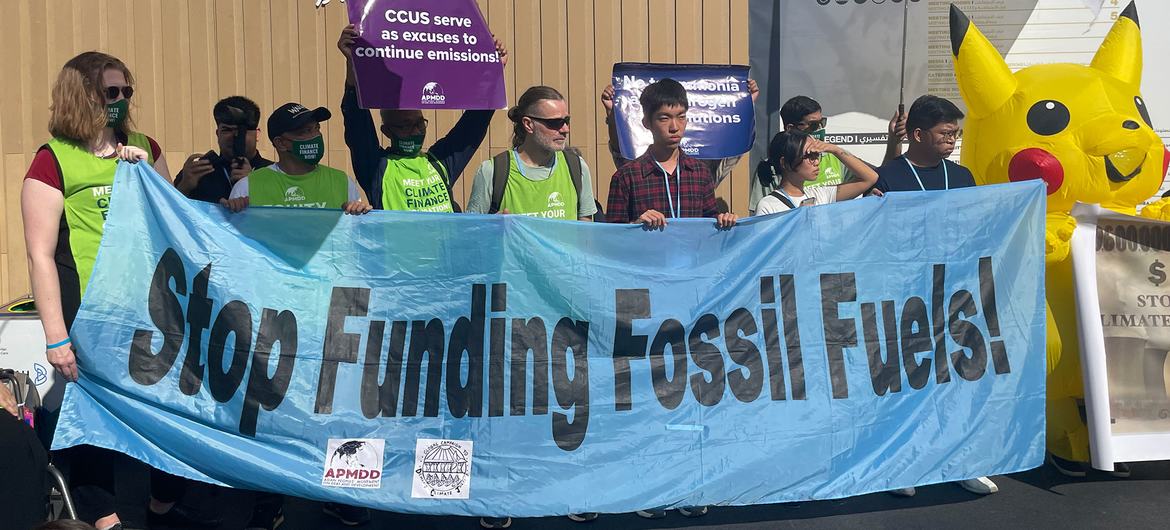The first of the ‘thematic’ days kicked off on Wednesday at COP27, focused on finance, and activists made it clear right from the start that there must be a global push to re-direct the hundreds of billions of dollars invested annually in fossil fuels to help fund community-led renewable energy initiatives.

Over 50 activists of all ages and backgrounds took over the so-called ‘Blue Zone’ – the main area of the conference centre in Sharm el-Sheikh overseen by the UN – to chant “Stop funding fossil fuels! Stop funding death!”
Susan Huang, representing the NGO Oil Change International, was among the participants aiming to shed light on the fact that wealthy countries, as noted by the UN Secretary-General earlier this week, are still pouring money into fossil fuels at a time when we need an urgent transition to renewable energy.
“At the G7 summit last year, there was an agreement to end public finance for fossil fuels by the end of this year. But the International Energy Agency has come out and said that actually the slow transition to renewables is what is exacerbating the climate crisis and the energy crisis. So, we’re urging world leaders to fulfil their commitment and stop public finance for fossil fuels,” she told UN News.
Ms. Huang said that these investments are also causing incredible damage, destroying biodiversity and devastating livelihoods across the world, and she was not alone: Dipti Bhatnagar, from Friends of the Earth International in Mozambique, delivered an impassioned speech that, if the nodding heads and enthusiastic murmurs of agreement were any indication, clearly resonated among all those entering the main square of the conference centre.
“Rich countries are out to grab the huge gas reserves, and people are being dispossessed of their land. One million people out of the 23 million [of Mozambique’s] population are living in refugee camps because of gas. We say no to more gas finance. We won’t let Africa burn,” she shouted.
The activists made clear that the best way to increase energy access worldwide and meet the needs of the most vulnerable is by investing in community-supported renewable energy plans.
“Energy plans that can be controlled and operated by the people in the community,” Ms. Huang explained.














